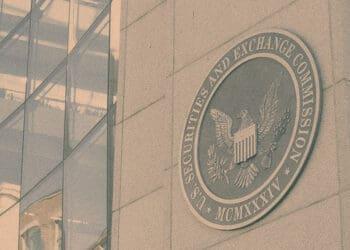Most of the world’s population lives in what’s now called the Global South, making these regions increasingly attractive for investment thanks to their potential for rapid development when compared to the West. But as Merrick Benn and Charlie Reid of Womble Bond Dickinson warn, investing in these regions isn’t a guarantee of success.
Countries classified as low, lower middle and upper middle income, categories based on per capita gross national income, have become hotspots for global investors in large part due to their higher potential growth rates compared to high-income countries. Their per capita income levels range from less than $1,135 in 2022 for low-income countries to $13,845 for upper-middle income countries.
These regions offer untapped markets ripe for rapid development, particularly as the spread of digital technologies fosters the emergence and growth of new markets at an unprecedented pace. The allure for investors lies in how technology lowers entry barriers, enhances market access and boosts operational efficiency, promising faster growth and higher returns.
Furthermore, the substantial need for infrastructure development in the Global South, encompassing everything from transportation and energy to water supply and sanitation, presents vast opportunities to support sustainable economic growth and improve living standards.
But investing in low and lower middle income countries often comes with serious challenges, including political instability and currency fluctuations.
How political unrest shakes the global finance markets
Political instability can manifest in various ways, including frequent governmental changes, civil unrest, labor strikes and even conflict. These can halt production or destroy infrastructure, affecting the profitability of investments.
Such instability may result in unpredictable policy shifts affecting foreign investment, taxation and profit repatriation, leading to the significant depreciation of assets. Furthermore, political turmoil can disrupt markets, supply chains and the broader business landscape.
For example, Venezuela’s political and economic turmoil, exacerbated by leadership disputes, sanctions and plummeting oil prices, has led to hyperinflation, a collapse in economic activity and a humanitarian crisis. This situation has not only devastated the country’s economy but also affected global oil markets, given Venezuela’s role as a significant oil exporter. The crisis has underscored the risks of political mismanagement and the importance of stable governance for economic health.
Sri Lanka and Kazakhstan have experienced significant and destabilizing civil unrest in recent years. A 2022 report noted that middle income countries that depend on importing food and fuel are particularly at risk of instability leading to civil unrest.
“Some countries risk falling into a vicious cycle, whereby worsening governance and social indicators make them ESG investment pariahs, impeding the inflows needed to improve economic performance and address societal needs,” wrote the report’s authors, Hamish Kinnear and Jimena Blanco.
Ignoring Geopolitical Risk During & After Cross-Border M&A Can Destroy Your Valuation in Minutes
FCPA declination illustrates value of mitigating compliance risks
Read moreDetailsCurrency fluctuation & criminal threats also challenge international investors
Additionally, these countries typically face greater currency volatility than their high-income counterparts.
Such fluctuations can have a profound effect on investment values, with a decline in the local currency against the investor’s home currency potentially diminishing investment returns and raising the cost of repatriating profits. Currency volatility can impact cross-border transactions as well. If currency exchange rates change between the time a business transaction is initiated and the time it is settled, it can lead to profits being eroded or losses being incurred.
For global companies, currency fluctuations in international investments can impact operations in their home countries. For example, such instability can make financial performance on the parent company’s financial reports appear more volatile, potentially affecting stock prices and shareholder value.
Currency instability can also drive inflation, thereby increasing operational expenses. High inflation can erode the purchasing power of a currency, leading to depreciation against other currencies. This can affect international buying power and investment returns. Conversely, deflation can lead to currency appreciation but may signal economic troubles that could also negatively impact investments.
Other global finance risks include:
- Financial crimes: As financial systems become more complex and globalized, detecting and preventing money laundering, fraud, insider trading and other types of financial misconduct becomes more challenging.
- Cybersecurity: Likewise, the digital nature of global financial transactions makes threats from cybercrime, data breaches and cyberattacks a serious risk.
- Pandemic recovery: Four years later, the global Covid-19 pandemic continues to present a substantial economic impact, such as loan defaults and inflation.
And while many low- and lower-middle income countries are actively working to improve their legal and regulatory systems to attract more foreign investment, investors may still face higher legal and regulatory obstacles in these countries. This can lead to difficulties in enforcing contracts, protecting intellectual property and resolving disputes.
Mitigating risks in global finance
So the risks of investing in the Global South are significant. But so are the potential rewards, both for investors and for nations that need international finance. Thankfully, strategies exist that provide a roadmap for companies to succeed in the international finance space.
Many countries within the lower income brackets are reforming their regulatory frameworks to further allure investment. These efforts include offering tax incentives, curtailing bureaucratic red tape, enhancing property rights and providing measures to protect investments.
Such reforms are designed to make these countries more attractive to foreign investors, including banks and lenders, which play a pivotal role in financing investment in these burgeoning markets. Companies should pay attention to these efforts and work with local governments, when possible, to find solutions.
There also are steps companies operating in the Global South can take to mitigate the risks.
One approach is diversification — spreading out investments across multiple countries and industries can help reduce the impact of political and currency fluctuations. Another option is to invest in stable currencies, such as the U.S. dollar or Euro, which historically have been less volatile than other currencies. Utilizing financial instruments like options and futures also can hedge against currency risk.
Company leaders also need to keep a close eye on the lay of the land. Keeping abreast of global economic indicators and political events can help investors anticipate market movements and adjust their investment strategies accordingly.
Opportunities abound for creditors and investors to find growth opportunities around the globe. Participants in the market should be aware of the risks, most notably currency fluctuations and political instability.




 Merrick Benn
Merrick Benn Charlie Reid
Charlie Reid







